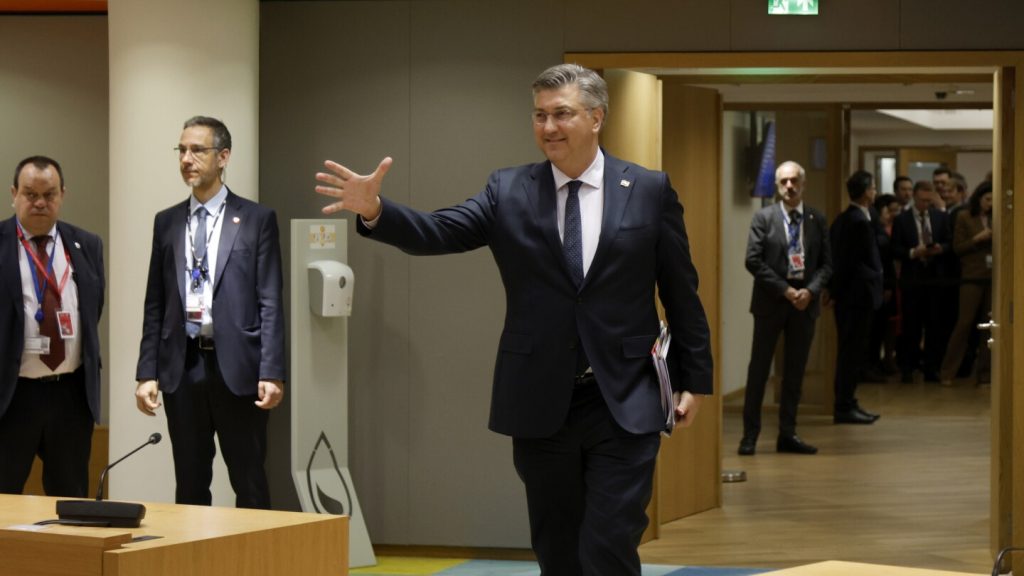The ruling conservatives in Croatia have begun talks to form a new governing majority following a highly contested parliamentary election that took place recently. Preliminary results showed that Prime Minister Andrej Plenković’s Croatian Democratic Union party won 61 seats in the 151-seat parliament, necessitating the formation of a coalition government to retain power. Plenković mentioned that talks have already started with potential future partners and more discussions are expected to take place. The main opponent, the center-left Social Democratic Party, secured 42 seats, while the far-right Homeland Movement emerged as a potential kingmaker with 14 seats.
Both Plenković and President Zoran Milanović have addressed the need for a majority coalition to lead the government, with Milanović emphasizing the importance of considering the will of the Croatian people expressed in the election results. Plenković, if he remains prime minister for a third consecutive term, will need to secure a stable majority to steer the country through ongoing challenges, including allegations of corruption, a labor shortage, and a surge in migration. The election outcome will not only shape Croatia’s domestic policies but also impact the country’s stance on supporting Ukraine in its conflict with Russia, potentially affecting EU unity.
The clash between Croatia’s main political leaders has added tension in the run-up to the election, which also serves as a test of popularity for the ruling conservatives ahead of the European Parliament election in June. Apart from the main parties, smaller groups like the pro-religious Most party and the green-leftist Možemo group also secured seats in the parliament. Možemo advocates for a minority government that focuses on combating corruption in the country, while the far-right Homeland Movement, comprising radical nationalists, poses a new challenge to the political landscape. Led by the hard-line mayor of Vukovar, a town heavily affected during the 1991-95 war, the party represents a shift from the center-right HDZ.
Croatia’s political future hangs in the balance as discussions continue to form a new governing majority, with the outcome likely to impact the country’s alignment with Western values or potentially open doors for stronger pro-Russia influence. The election results have broader implications for the country’s role within the EU, especially amid the ongoing conflict in Ukraine. While Plenković’s HDZ aims to maintain a pro-Western course, Milanović’s stance on EU policies regarding the war in Ukraine could lead to a different direction if he manages to form a government. As Croatia navigates through these challenges, the formation of a stable governing coalition remains crucial for addressing key issues and shaping the country’s future trajectory.
In the midst of political turmoil and shifting alliances, Croatia continues to grapple with economic uncertainties, migration pressures, and calls for reform to tackle corruption. The upcoming formation of a government will set the stage for addressing these pressing issues and steering the country towards stability and progress. With the European Parliament elections looming on the horizon, Croatia’s political landscape remains dynamic, reflecting a diverse range of perspectives and priorities among its citizens. As negotiations unfold and new alliances take shape, the road ahead for Croatia will be defined by the choices made in the aftermath of this pivotal election.


